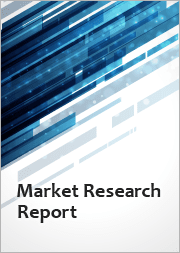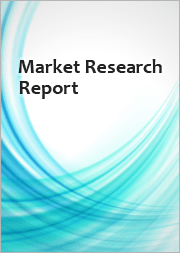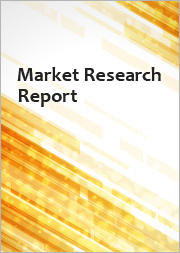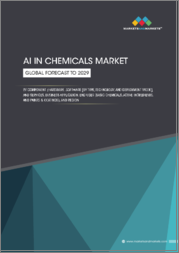
|
시장보고서
상품코드
1804857
산성 금속 복합 염료 시장 : 제품 유형별, 용도별, 최종 이용 산업별, 지역별 - 분석과 예측(2025-2034년)Acid Metal Complex Dyes Market - A Global and Regional Analysis: Focus on Product Type, Application, End-Use Industry, and Regional Analysis - Analysis and Forecast, 2025-2034 |
||||||
산성 금속 복합 염료 시장은 섬유 산업 및 특수 화학 산업에서 중요한 역할을 하며, 양모, 실크, 나일론 및 기타 단백질 섬유의 내구성이 높고 생생한 착색 솔루션에 대한 수요를 지원합니다.
세계의 섬유 생산이 소비자 수요의 높아짐, 패션 동향, 테크니컬·텍스타일 용도에 밀려 확대를 계속하는 가운데, 색의 선명함과 견뢰도 특성의 향상을 겸비한 고성능 염료의 필요성이 점점 높아지고 있습니다.
이 업계는 염료의 품질과 환경 적합성의 향상을 목표로 한 기술의 진보가 계속되고 있는 것이 특징입니다. 선도적인 제조 업체는 우수한 세탁 견뢰도와 내광 견뢰도를 유지하면서 유해 금속의 함량을 줄인 환경 친화적인 금속 착염 형 산성 염료로 혁신을 진행하고 있습니다. 이 진화는 REACH, ZDHC 등의 규제 강화에 의해 추진되어 지속가능한 화학과 보다 깨끗한 제조 공정에 대한 투자를 촉진하고 산성 금속 복합 염료 시장을 지원하고 있습니다.
| 주요 시장 통계 | |
|---|---|
| 예측 기간 | 2025-2034년 |
| 평가(2025년) | 2억 9,700만 달러 |
| 예측(2034년) | 3억 6,000만 달러 |
| CAGR | 2.16% |
현대의 산성 금속 복합 염료 기술에서는 주로 크롬, 구리, 아연 등의 금속을 이용하여 안정된 금속-염료 배위 복합체를 형성하여 섬유와 강하게 결합하여 내구성을 향상시킵니다. 혁신적인 기술로는 미분화된 금속염의 사용, 염료의 분산성을 높이는 나노기술, 세계적인 지속가능성 목표에 따른 바이오 염료 성분 등이 있습니다. 이러한 진보로 섬유 제조업체는 안정적인 품질을 실현하고 진화하는 소비자와 규제의 기대에 부응할 수 있게 되어 산성 금속 복합 염료 시장을 견인하고 있습니다.
녹색 제조와 디지털 날염이 중요해짐에 따라 산성 금속 복합 염료는 정교한 제조 워크플로우에 점점 더 통합되어 가고 있습니다. 이 시장 동향은 염료 성능의 향상, 환경 부하의 저감, 섬유 산업의 지속 가능하고 스마트한 제조 관행으로의 이행을 지원하기 위해 기업이 연구 개발에 투자하고 있으며, 산성 금속 복합 염료 시장 성장을 견인하고 있기 때문에 향후도 계속될 것으로 예측됩니다.
산성 금속 복합 염료 시장의 수명주기 단계
산성 금속 복합 염료 시장은 현재 성장기부터 성숙 초기 단계에 있으며 기술 성숙도(TRL) 6-9의 단계에 있습니다. 세탁 견뢰도, 내광 견뢰도, 섬유 적합성 등의 성능 특성을 향상시키면서 지속 가능하고 환경 친화적인 염료 배합의 생산을 확대하는 데 중점을 두고 있습니다. 업계 관계자는 실험실 및 파일럿 규모의 혁신에서 대규모 상업 생산으로 전환하고 있으며, 프로세스 최적화, 규제 준수 및 환경 안전을 중시하고 있습니다.
산성 금속 복합 염료가 보다 지속가능한 섬유 공급망에 혼입됨에 따라 화학 제조업체, 섬유 제조업체, 규제 기관의 협력이 필수적입니다. 유해물질의 규제, 폐수처리, 지속가능한 제조와 관련된 규제 프레임워크은 급속히 진화하고 있으며, 영향이 적은 염료화학물질과 보다 깨끗한 제조방법의 기술 혁신을 촉진하고 있습니다.
아시아태평양의 섬유 시장 확대, 테크니컬 텍스타일 용도 확대, 지속가능한 패션에 대한 소비자 의식 증가로 인한 수요 증가로 상업 전개가 세계적으로 가속화되고 있습니다. 이러한 시장 요구에 대응하기 위해 기업이 사업을 확대하는 가운데, 바이오 베이스 염료, 나노 테크놀로지로 강화된 배합, 디지털 날염 기술과의 통합에 초점을 맞춘 연구 개발에 다액의 투자가 이루어지고 있습니다. 시장이 성숙함에 따라 산성 금속 복합 염료는 고성능, 환경 친화적인 섬유 염색 공정의 중요한 구성 요소이며, 지속 가능한 세계 스마트 생태계로의 전이를 지원합니다. 이들 모두는 산성 금속 복합 염료 시장을 더욱 견인할 것으로 예측됩니다.
산성 금속 복합 염료 시장 세분화 :
세분화 1 : 제품 유형별
- 금속 복합체 유형
- 크롬 복합체 염료
- 구리 복합체 염료
- 아연 복합체 염료
- 염료 형태
- 분말
- 액체/용액
- 페이스트
부문 2 : 용도별
- 의류 패션
- 가정용 가구
- 자동차
- 기타
세분화 3 : 최종 이용 산업별
- 섬유 산업
- 가죽 산업
- 제지 산업
- 기타
부문 4 : 지역별
- 북미 - 미국, 캐나다, 멕시코
- 유럽 - 독일, 프랑스, 이탈리아, 스페인, 영국, 기타
- 아시아태평양 - 중국, 일본, 한국, 인도, 기타
- 기타 지역 - 남미, 중동, 아프리카
수요 - 촉진요인과 한계
산성 금속 복합 염료 시장 수요 촉진요인은 다음과 같습니다.
- 섬유 산업 수요 증가
- 염료화학과 제조의 혁신
산성 금속 복합 염료 시장은 다음과 같은 과제로 인해 몇 가지 억제요인에 직면할 것으로 예측됩니다.
- 대체 염료 기술과의 경쟁
- 환경과 건강에 대한 우려
산성 금속 복합 염료 시장의 주요 기업과의 경쟁 요약
산성 금속 복합 염료 시장은 기존의 화학 콩그로말리트와 염료 전업 제조업체가 혼재하는 경쟁이 치열한 시장입니다. BASF SE, Clariant AG, Huntsman Corporation과 같은 선도적인 세계 기업은 우수한 견고성, 내구성 및 엄격한 환경 규제에 적합성으로 알려진 산성 금속 복합 염료의 광범위한 포트폴리오를 제공하며 이 분야를 지배하고 있습니다. 기술 혁신 측면에서 DyStar Group과 같은 기업은 고급 섬유 용도와 진화하는 시장 수요에 대응하는 친환경적이고 지속 가능한 염료 솔루션을 개발하고 있습니다.
그 밖에 수다르산 케미컬 인더스트리즈(Sudarshan Chemical Industries Ltd.)와 Jiangsu Baichuan Chemical Group Co., Ltd.와 같은 주요 기업들은 아시아태평양에서 급성장하는 섬유 산업에 대응하기 때문에 대량 생산과 비용 효율적인 솔루션에 주력하고 있습니다. 게다가 인도, 중국, 한국의 지역 업체들이 경쟁을 격화시키고 있으며, 이들은 지역 밀착형 공급망과 적극적인 가격 전략을 활용하여 산성 금속 복합 염료 시장 점유율을 획득하고 있습니다.
경쟁 환경은 바이오 염료 및 저환경 부하 염료 개발을 위한 R&D에 대한 지속적인 투자, ZDHC 및 REACH와 같은 세계 표준 준수, 지리적 범위 확대를 목표로 하는 전략적 파트너십에 의해 촉진되고 있습니다. 시장 진출기업이 섬유 적합성과 견뢰도 특성을 높이는 첨단 염료 배합을 혁신하기 위해 노력하면서 산성 금속 복합 염료 시장은 세계 산업 및 환경 목표를 달성하는 데 필수적이고 지속가능하고 고성능의 염색 솔루션을 향해 빠르게 진화하고 있습니다.
산성 금속 복합 염료 시장에서 확립된 유명한 기업은 다음과 같습니다.
- BASF SE
- Clariant AG
- Huntsman Corporation
- Dystar
- Heubach GmbH
- Archroma
- Sudarshan Chemical Industries Ltd.
- Jiangsu Baichuan Chemical Group Co., Ltd.
- Nippon Kayaku Co., Ltd.
- Taj Dyes and Chemicals Ltd.
- Sumitomo Chemical Co., Ltd.
- Yarntex Chemical Industries
- Zhejiang NHU Co., Ltd.
산성 금속 복합 염료 시장 보고서에서는 앞서 언급한 풀에 속하지 않는 기업도 다양한 섹션에서 소개하고 있습니다(해당되는 경우).
목차
주요 요약
제1장 시장 : 업계 전망
- 동향 : 현상과 장래에 대한 영향 평가
- 시장 역학 개요
- 시장 성장 촉진요인
- 시장 성장 억제요인
- 시장 기회
- 규제 및 정책 영향 분석
- 특허 분석
- 세계 가격 분석
제2장 산성 금속 복합 염료 시장(제품 유형별)
- 금속 복합체 유형
- 크롬 복합체 염료
- 구리 복합체 염료
- 아연 복합체 염료
- 염료 형태
- 분말
- 액체/용액
- 페이스트
제3장 산성 금속 복합 염료 시장(용도별)
- 의류 및 패션
- 가정용 가구
- 자동차
- 기타
제4장 산성 금속 복합 염료 시장(최종 이용 산업별)
- 섬유 산업
- 가죽 산업
- 제지 산업
- 기타
제5장 산성 금속 복합 염료 시장(지역별, 2021-2031년)
- 산성 금속 복합 염료 시장(지역별, 2021-2031년)
- 북미
- 유럽
- 아시아태평양
- 기타 지역
제6장 시장 - 경쟁 벤치마킹 및 기업 프로파일
- 향후 전망
- 지리적 평가
- 기업 프로파일
- BASF SE
- Clariant AG
- Huntsman Corporation
- Dystar
- Heubach GmbH
- Archroma
- Sudarshan Chemical Industries Ltd.
- Jiangsu Baichuan Chemical Group Co., Ltd.
- Nippon Kayaku Co., Ltd.
- Taj Dyes and Chemicals Ltd.
- Sumitomo Chemical Co., Ltd.
- Yarntex Chemical Industries
- Zhejiang NHU Co., Ltd.
- 기타 주요 기업
제7장 조사 방법
KTH 25.09.10Acid Metal Complex Dyes Market: Industry Overview
The acid metal complex dyes market plays a vital role in the textile and specialty chemicals industries, supporting the demand for durable and vibrant colouring solutions across wool, silk, nylon, and other protein fibres. As global textile production continues to expand-fuelled by rising consumer demand, fashion trends, and technical textile applications-the need for high-performance dyes that combine colour brilliance with enhanced fastness properties becomes increasingly important.
The industry is characterized by ongoing technological advancements aimed at improving dye quality and environmental compatibility. Leading manufacturers are innovating with eco-friendly acid metal complex dyes that reduce hazardous metal content while maintaining superior wash and light fastness. This evolution is propelled by tightening regulations such as REACH and ZDHC, driving investments in sustainable chemistry and cleaner manufacturing processes, thereby supporting the acid metal complex dyes market.
| KEY MARKET STATISTICS | |
|---|---|
| Forecast Period | 2025 - 2034 |
| 2025 Evaluation | $297.0 Million |
| 2034 Forecast | $360.0 Million |
| CAGR | 2.16% |
Modern acid metal complex dye technologies involve the formation of stable metal-dye coordination complexes, primarily using metals like chromium, copper, and zinc, which bind strongly to fibres and improve durability. Innovations include the use of micronized metal salts, nanotechnology for better dye dispersion, and bio-based dye components to align with global sustainability goals. These advancements enable textile producers to achieve consistent quality and meet evolving consumer and regulatory expectations, thereby driving the acid metal complex dyes market.
With the growing emphasis on green manufacturing and digital textile printing, acid metal complex dyes are becoming increasingly integrated into sophisticated production workflows. This market trend is expected to continue as companies invest in R&D to enhance dye performance, reduce environmental impact, and support the textile industry's shift toward sustainable and smart manufacturing practices and driving the acid metal complex dyes market growth.
Acid Metal Complex Dyes Market Lifecycle Stage
The acid metal complex dyes market is currently in the growth to early maturity phase, with technologies at Technology Readiness Levels (TRLs) 6-9. The focus is on scaling production of sustainable, eco-friendly dye formulations while enhancing performance attributes such as wash fastness, light fastness, and fibre compatibility. Industry players are transitioning from laboratory and pilot-scale innovations to large-scale commercial manufacturing, emphasizing process optimization, regulatory compliance, and environmental safety.
Collaborations between chemical manufacturers, textile producers, and regulatory bodies are essential as acid metal complex dyes become integrated into more sustainable textile supply chains. Regulatory frameworks related to hazardous substance restrictions, wastewater treatment, and sustainable manufacturing are evolving rapidly, driving innovation in low-impact dye chemistries and cleaner production methods.
Commercial deployment is accelerating globally, driven by increasing demand from expanding textile markets in Asia-Pacific, growing technical textile applications, and rising consumer awareness around sustainable fashion. As companies scale operations to meet these market needs, significant investments are being directed toward R&D focused on bio-based dyes, nanotechnology-enhanced formulations, and integration with digital textile printing technologies. As the market matures, acid metal complex dyes will remain a critical component of high-performance, environmentally responsible textile dyeing processes, supporting the industry's transition toward sustainable and smart manufacturing ecosystems worldwide. All this expected to further drive the acid metal complex dyes market.
Acid Metal Complex Dyes Market Segmentation:
Segmentation 1: by Product Type
- Metal Complex Type
- Chrome Complex Dyes
- Copper Complex Dyes
- Zinc Complex Dyes
- Dye Form
- Powder
- Liquid/Solution
- Paste
Segmentation 2: by Application
- Apparel and Fashion
- Home Furnishing
- Automotive
- Others
Segmentation 3: by End-Use Industry
- Textile Industry
- Leather Industry
- Paper Industry
- Others
Segmentation 4: by Region
- North America - U.S., Canada, and Mexico
- Europe - Germany, France, Italy, Spain, U.K., and Rest-of-Europe
- Asia-Pacific - China, Japan, South Korea, India, and Rest-of-Asia-Pacific
- Rest-of-the-World - South America and Middle East and Africa
Demand - Drivers and Limitations
The following are the demand drivers for the Acid Metal Complex Dyes Market:
- Growing Textile Industry Demand
- Innovation in Dye Chemistry and Manufacturing
The Acid Metal Complex Dyes Market is expected to face some limitations as well due to the following challenges:
- Competition from Alternative Dye Technologies
- Environmental and Health Concerns
Acid Metal Complex Dyes Market Key Players and Competition Synopsis
The acid metal complex dyes market presents a highly competitive landscape driven by a blend of established chemical conglomerates and specialized dye manufacturers. Leading global players such as BASF SE, Clariant AG, and Huntsman Corporation dominate the sector, offering extensive portfolios of acid metal complex dyes known for superior colour fastness, durability, and compliance with stringent environmental regulations. On the innovation front, companies like DyStar Group are advancing the development of eco-friendly and sustainable dye solutions that cater to premium textile applications and evolving market demands.
Other key players, including Sudarshan Chemical Industries Ltd. and Jiangsu Baichuan Chemical Group Co., Ltd., focus on high-volume production and cost-effective solutions to serve the rapidly growing textile industries in Asia-Pacific. Competition is further intensified by regional manufacturers in India, China, and South Korea, who leverage localized supply chains and aggressive pricing strategies to capture the acid metal complex dyes market share.
The competitive environment is fuelled by continuous investment in R&D for developing bio-based and low-impact dyes, adherence to global standards such as ZDHC and REACH, and strategic partnerships aimed at expanding geographical reach. As market participants strive to innovate with advanced dye formulations that enhance fibre compatibility and fastness properties, the acid metal complex dyes market is rapidly evolving towards more sustainable and high-performance dyeing solutions essential for meeting both industrial and environmental goals worldwide.
Some prominent names established in the Acid Metal Complex Dyes Market are:
- BASF SE
- Clariant AG
- Huntsman Corporation
- Dystar
- Heubach GmbH
- Archroma
- Sudarshan Chemical Industries Ltd.
- Jiangsu Baichuan Chemical Group Co., Ltd.
- Nippon Kayaku Co., Ltd.
- Taj Dyes and Chemicals Ltd.
- Sumitomo Chemical Co., Ltd.
- Yarntex Chemical Industries
- Zhejiang NHU Co., Ltd.
Companies that are not a part of the previously mentioned pool have been well represented across different sections of the acid metal complex dyes market report (wherever applicable).
Table of Contents
Executive Summary
Scope and Definition
Market/Product Definition
Key Questions Answered
Analysis and Forecast Note
1. Markets: Industry Outlook
- 1.1 Trends: Current and Future Impact Assessment
- 1.2 Market Dynamics Overview
- 1.2.1 Market Drivers
- 1.2.2 Market Restraints
- 1.2.3 Market Opportunities
- 1.3 Regulatory & Policy Impact Analysis
- 1.4 Patent Analysis
- 1.5 Global Pricing Analysis
2. Acid Metal Complex Dyes Market (by Product Type)
- 2.1 Metal Complex Type
- 2.1.1 Chrome Complex Dyes
- 2.1.2 Copper Complex Dyes
- 2.1.3 Zinc Complex Dyes
- 2.2 Dye Form
- 2.2.1 Powder
- 2.2.2 Liquid/Solution
- 2.2.3 Paste
3. Acid Metal Complex Dyes Market (by Application)
- 3.1 Apparel and Fashion
- 3.2 Home Furnishing
- 3.3 Automotive
- 3.4 Others
4. Acid Metal Complex Dyes Market (by End-Use Industry)
- 4.1 Textile Industry
- 4.2 Leather Industry
- 4.3 Paper Industry
- 4.4 Others
5. Acid Metal Complex Dyes Market (by Region)
- 5.1 Acid Metal Complex Dyes Market (by Region)
- 5.2 North America
- 5.2.1 Regional Overview
- 5.2.2 Driving Factors for Market Growth
- 5.2.3 Factors Challenging the Market
- 5.2.4 Key Companies
- 5.2.5 Product Type
- 5.2.6 Application
- 5.2.7 End-Use Industry
- 5.2.8 North America (by Country)
- 5.2.8.1 U.S.
- 5.2.8.1.1 Market by Product Type
- 5.2.8.1.2 Market by Application
- 5.2.8.1.3 Market by End-Use Industry
- 5.2.8.2 Canada
- 5.2.8.2.1 Market by Product Type
- 5.2.8.2.2 Market by Application
- 5.2.8.2.3 Market by End-Use Industry
- 5.2.8.3 Mexico
- 5.2.8.3.1 Market by Product Type
- 5.2.8.3.2 Market by Application
- 5.2.8.3.3 Market by End-Use Industry
- 5.2.8.1 U.S.
- 5.3 Europe
- 5.3.1 Regional Overview
- 5.3.2 Driving Factors for Market Growth
- 5.3.3 Factors Challenging the Market
- 5.3.4 Key Companies
- 5.3.5 Product Type
- 5.3.6 Application
- 5.3.7 End-Use Industry
- 5.3.8 Europe (by Country)
- 5.3.8.1 Germany
- 5.3.8.1.1 Market by Product Type
- 5.3.8.1.2 Market by Application
- 5.3.8.1.3 Market by End-Use Industry
- 5.3.8.2 France
- 5.3.8.2.1 Market by Product Type
- 5.3.8.2.2 Market by Application
- 5.3.8.2.3 Market by End-Use Industry
- 5.3.8.3 Italy
- 5.3.8.3.1 Market by Product Type
- 5.3.8.3.2 Market by Application
- 5.3.8.3.3 Market by End-Use Industry
- 5.3.8.4 Spain
- 5.3.8.4.1 Market by Product Type
- 5.3.8.4.2 Market by Application
- 5.3.8.4.3 Market by End-Use Industry
- 5.3.8.5 U.K.
- 5.3.8.5.1 Market by Product Type
- 5.3.8.5.2 Market by Application
- 5.3.8.5.3 Market by End-Use Industry
- 5.3.8.6 Rest-of-Europe
- 5.3.8.6.1 Market by Product Type
- 5.3.8.6.2 Market by Application
- 5.3.8.6.3 Market by End-Use Industry
- 5.3.8.1 Germany
- 5.4 Asia-Pacific
- 5.4.1 Regional Overview
- 5.4.2 Driving Factors for Market Growth
- 5.4.3 Factors Challenging the Market
- 5.4.4 Key Companies
- 5.4.5 Product Type
- 5.4.6 Application
- 5.4.7 End-Use Industry
- 5.4.8 Asia-Pacific (by Country)
- 5.4.8.1 China
- 5.4.8.1.1 Market by Product Type
- 5.4.8.1.2 Market by Application
- 5.4.8.1.3 Market by End-Use Industry
- 5.4.8.2 Japan
- 5.4.8.2.1 Market by Product Type
- 5.4.8.2.2 Market by Application
- 5.4.8.2.3 Market by End-Use Industry
- 5.4.8.3 India
- 5.4.8.3.1 Market by Product Type
- 5.4.8.3.2 Market by Application
- 5.4.8.3.3 Market by End-Use Industry
- 5.4.8.4 South Korea
- 5.4.8.4.1 Market by Product Type
- 5.4.8.4.2 Market by Application
- 5.4.8.4.3 Market by End-Use Industry
- 5.4.8.5 Rest-of-Asia-Pacific
- 5.4.8.5.1 Market by Product Type
- 5.4.8.5.2 Market by Application
- 5.4.8.5.3 Market by End-Use Industry
- 5.4.8.1 China
- 5.5 Rest-of-the-World
- 5.5.1 Regional Overview
- 5.5.2 Driving Factors for Market Growth
- 5.5.3 Factors Challenging the Market
- 5.5.4 Key Companies
- 5.5.5 Product Type
- 5.5.6 Application
- 5.5.7 End-Use Industry
- 5.5.8 Rest-of-the-World (by Region)
- 5.5.8.1 South America
- 5.5.8.1.1 Market by Product Type
- 5.5.8.1.2 Market by Application
- 5.5.8.1.3 Market by End-Use Industry
- 5.5.8.2 Middle East and Africa
- 5.5.8.2.1 Market by Product Type
- 5.5.8.2.2 Market by Application
- 5.5.8.2.3 Market by End-Use Industry
- 5.5.8.1 South America
6. Markets - Competitive Benchmarking & Company Profiles
- 6.1 Next Frontiers
- 6.2 Geographic Assessment
- 6.3 Company Profiles
- 6.3.1 BASF SE
- 6.3.1.1 Overview
- 6.3.1.2 Top Products/Product Portfolio
- 6.3.1.3 Top Competitors
- 6.3.1.4 Target Customers
- 6.3.1.5 Key Personnel
- 6.3.1.6 Analyst View
- 6.3.1.7 Market Share
- 6.3.2 Clariant AG
- 6.3.2.1 Overview
- 6.3.2.2 Top Products/Product Portfolio
- 6.3.2.3 Top Competitors
- 6.3.2.4 Target Customers
- 6.3.2.5 Key Personnel
- 6.3.2.6 Analyst View
- 6.3.2.7 Market Share
- 6.3.3 Huntsman Corporation
- 6.3.3.1 Overview
- 6.3.3.2 Top Products/Product Portfolio
- 6.3.3.3 Top Competitors
- 6.3.3.4 Target Customers
- 6.3.3.5 Key Personnel
- 6.3.3.6 Analyst View
- 6.3.3.7 Market Share
- 6.3.4 Dystar
- 6.3.4.1 Overview
- 6.3.4.2 Top Products/Product Portfolio
- 6.3.4.3 Top Competitors
- 6.3.4.4 Target Customers
- 6.3.4.5 Key Personnel
- 6.3.4.6 Analyst View
- 6.3.4.7 Market Share
- 6.3.5 Heubach GmbH
- 6.3.5.1 Overview
- 6.3.5.2 Top Products/Product Portfolio
- 6.3.5.3 Top Competitors
- 6.3.5.4 Target Customers
- 6.3.5.5 Key Personnel
- 6.3.5.6 Analyst View
- 6.3.5.7 Market Share
- 6.3.6 Archroma
- 6.3.6.1 Overview
- 6.3.6.2 Top Products/Product Portfolio
- 6.3.6.3 Top Competitors
- 6.3.6.4 Target Customers
- 6.3.6.5 Key Personnel
- 6.3.6.6 Analyst View
- 6.3.6.7 Market Share
- 6.3.7 Sudarshan Chemical Industries Ltd.
- 6.3.7.1 Overview
- 6.3.7.2 Top Products/Product Portfolio
- 6.3.7.3 Top Competitors
- 6.3.7.4 Target Customers
- 6.3.7.5 Key Personnel
- 6.3.7.6 Analyst View
- 6.3.7.7 Market Share
- 6.3.8 Jiangsu Baichuan Chemical Group Co., Ltd.
- 6.3.8.1 Overview
- 6.3.8.2 Top Products/Product Portfolio
- 6.3.8.3 Top Competitors
- 6.3.8.4 Target Customers
- 6.3.8.5 Key Personnel
- 6.3.8.6 Analyst View
- 6.3.8.7 Market Share
- 6.3.9 Nippon Kayaku Co., Ltd.
- 6.3.9.1 Overview
- 6.3.9.2 Top Products/Product Portfolio
- 6.3.9.3 Top Competitors
- 6.3.9.4 Target Customers
- 6.3.9.5 Key Personnel
- 6.3.9.6 Analyst View
- 6.3.9.7 Market Share
- 6.3.10 Taj Dyes and Chemicals Ltd.
- 6.3.10.1 Overview
- 6.3.10.2 Top Products/Product Portfolio
- 6.3.10.3 Top Competitors
- 6.3.10.4 Target Customers
- 6.3.10.5 Key Personnel
- 6.3.10.6 Analyst View
- 6.3.10.7 Market Share
- 6.3.10.8 Share
- 6.3.11 Sumitomo Chemical Co., Ltd.
- 6.3.11.1 Overview
- 6.3.11.2 Top Products/Product Portfolio
- 6.3.11.3 Top Competitors
- 6.3.11.4 Target Customers
- 6.3.11.5 Key Personnel
- 6.3.11.6 Analyst View
- 6.3.11.7 Market Share
- 6.3.11.8 Share
- 6.3.12 Yarntex Chemical Industries
- 6.3.12.1 Overview
- 6.3.12.2 Top Products/Product Portfolio
- 6.3.12.3 Top Competitors
- 6.3.12.4 Target Customers
- 6.3.12.5 Key Personnel
- 6.3.12.6 Analyst View
- 6.3.12.7 Market Share
- 6.3.13 Zhejiang NHU Co., Ltd.
- 6.3.13.1 Overview
- 6.3.13.2 Top Products/Product Portfolio
- 6.3.13.3 Top Competitors
- 6.3.13.4 Target Customers
- 6.3.13.5 Key Personnel
- 6.3.13.6 Analyst View
- 6.3.13.7 Market Share
- 6.3.13.8 Share
- 6.3.1 BASF SE
- 6.4 Other Key Companies






